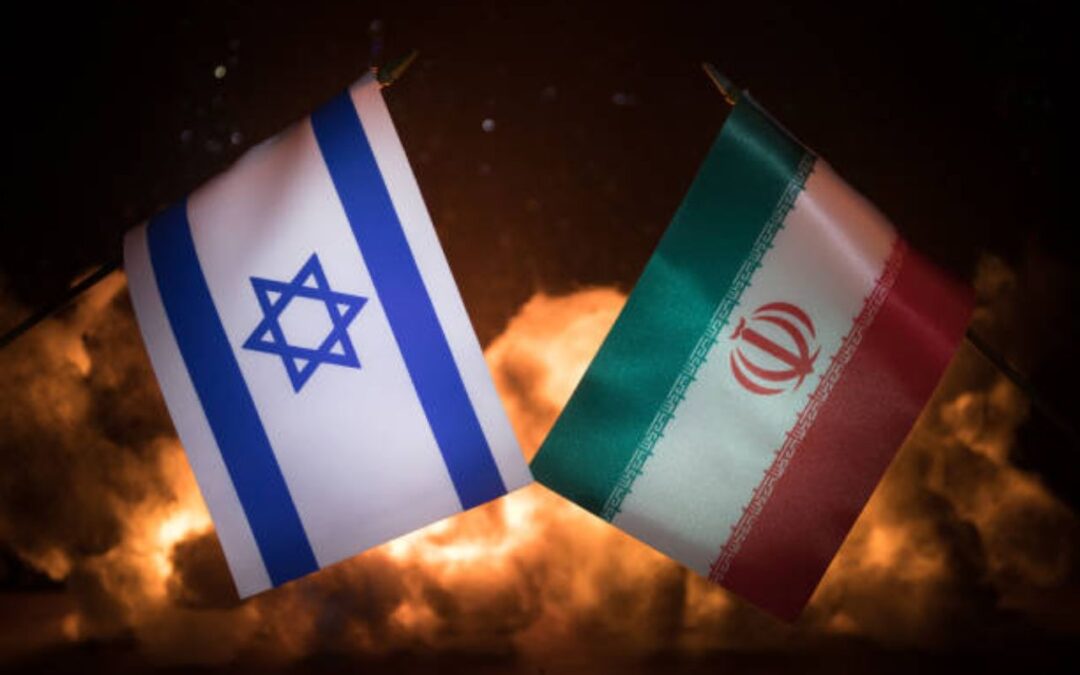On June 13, Israel escalated tensions with Iran by launching preemptive airstrikes on key nuclear and military sites, aiming to disrupt Iran’s enrichment and weaponization programs.
Prime Minister Netanyahu claimed successful strikes on facilities, scientists, and missile infrastructure. Reports suggest the attacks killed senior Iranian military leaders, including armed forces chief Mohammad Bagheri and IRGC commander Hossein Salami.
In response, Iran launched over 100 drones targeting Israel, prompting the Israel Defence Forces (IDF) to activate full-scale air defences. Labeling the situation as unprecedented, the IDF urged citizens to stay resilient and calm, warning of challenging times ahead amid rapidly escalating tensions between the two adversarial nations.
US Intervention
The U.S. recently carried out airstrikes on three major nuclear sites in Iran, which President Donald Trump described as a “spectacular military success.” In a televised address, he claimed the attacks had destroyed Iran’s key nuclear enrichment facilities, marking a significant escalation in regional tensions.
Further, President Trump stated that U.S. forces launched six bunker-buster bombs and 30 Tomahawk missiles at Iranian sites, warning of further action if Iran rejects a peace deal. While officials insist the U.S. isn’t at war, Trump’s threats have sparked global concern. Netanyahu praised Trump’s bold stance against Iran.
Closure of the Strait of Hormuz
The Strait of Hormuz is a narrow, strategically vital waterway connecting the Persian Gulf to the Arabian Sea. It is one of the world’s busiest oil and gas shipping routes. Iran borders the Strait and plays a key role in its control, making it a geopolitical flashpoint in global trade.
Amid escalating Iran-Israel tensions and a U.S. strike on Iranian nuclear sites, fears are mounting over the potential closure of the Strait of Hormuz, a vital route for 20% of global oil and gas trade. Iran’s Parliament has approved the move, pending a final decision from the Supreme National Security Council, heightening global economic and security concerns.
Impact of this escalation
- India’s rice exports have been severely affected by the Israel-Iran conflict, with over 1 lakh metric tonnes of Basmati rice stuck at Kandla and Mundra ports. Satish Goyal of the All India Rice Exporters Association warned that closure of the Strait of Hormuz could disrupt 80 percent of exports, especially to Iran, which accounts for 30–35 percent of Basmati shipments.
- India imports around 90% of its crude oil and nearly half of its natural gas to meet domestic demand. Crude oil is refined into petrol and diesel, while imported natural gas supports electricity generation, fertiliser manufacturing, CNG for transportation, and household cooking gas, making energy imports vital to India’s economic and infrastructure needs.
- India obtains approximately 40% of its oil requirements from Middle Eastern countries, including Iraq, Saudi Arabia, the United Arab Emirates, and Kuwait, with shipments travelling through the Strait of Hormuz.
- India imports around 5.5 million barrels of crude oil daily, with 2 million bpd transiting a key strategic route. Despite potential disruptions, experts highlight India’s strong energy security, supported by a diversified import portfolio. Alternative suppliers like Russia, the U.S., and Brazil ensure continued supply and reduce dependency on any single corridor or region.
- India’s gas supply remains secure despite tensions around the Strait of Hormuz. Its main supplier, Qatar, uses alternative routes for Indian deliveries, avoiding the Strait. Moreover, diversified LNG imports from countries like Australia, Russia, and the US ensure continued access to energy, minimizing the impact of any potential disruption in the region.
Conclusion
While the Israel-Iran conflict poses regional risks, India’s diversified energy sources and Qatar’s alternative LNG routes offer a cushion against immediate disruptions.
However, the closure of the Strait of Hormuz could significantly impact rice exports and oil shipments. India must remain vigilant, adapt trade routes, and strengthen energy security to mitigate potential economic and supply chain shocks.
Written by Abhishek Singh
Disclaimer

The views and investment tips expressed by investment experts/broking houses/rating agencies on tradebrains.in are their own, and not that of the website or its management. Investing in equities poses a risk of financial losses. Investors must therefore exercise due caution while investing or trading in stocks. Trade Brains Technologies Private Limited or the author are not liable for any losses caused as a result of the decision based on this article. Please consult your investment advisor before investing.


